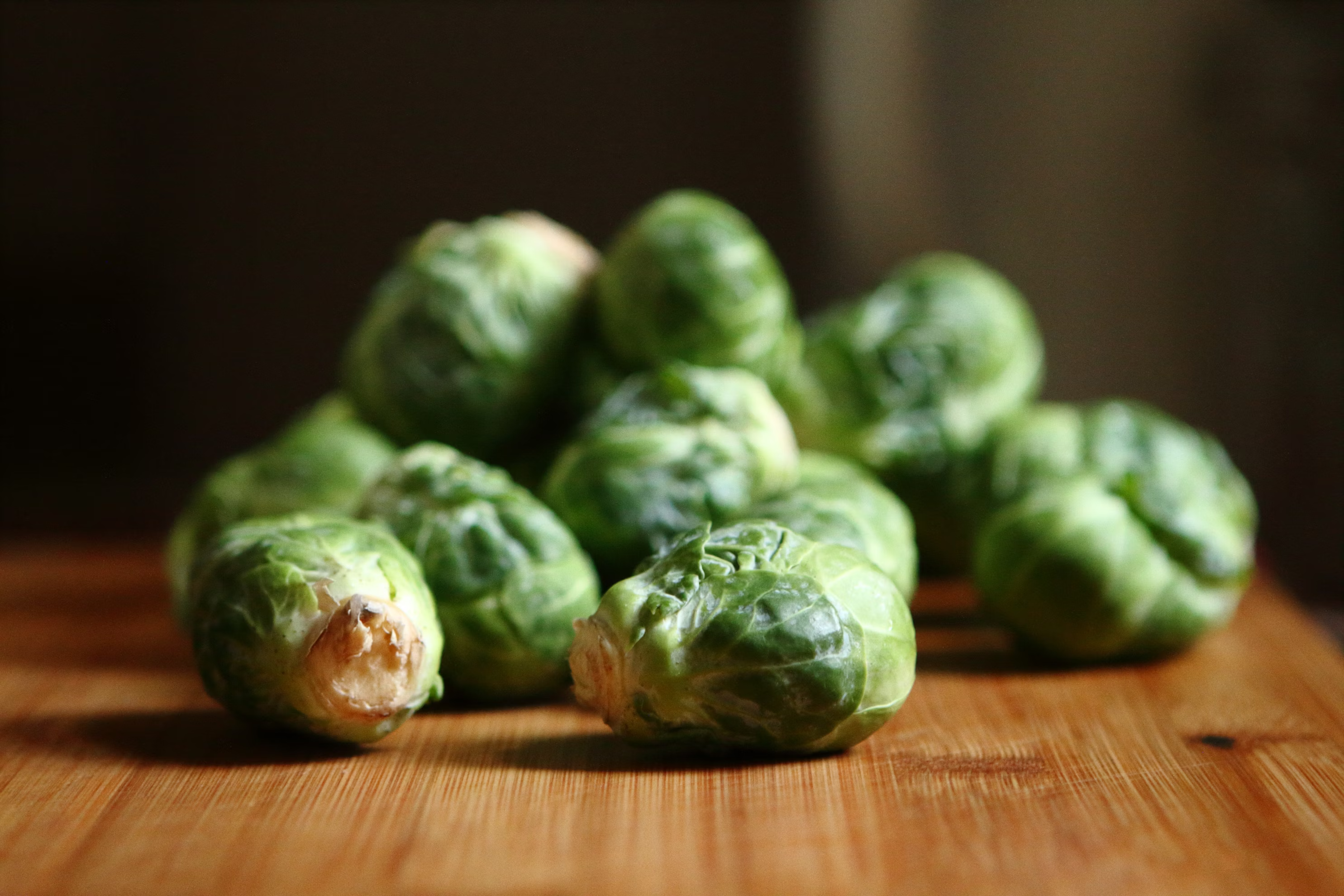Brussels Sprouts Calories: Quick Facts
Brussels sprouts are a cruciferous vegetable, known for their distinct, nutty flavor and their rich nutritional profile. They are not only a versatile addition to many dishes but also hold a positive reputation among health-conscious individuals for their low-calorie content. A cup of raw Brussels sprouts contains approximately 38 calories, offering a nutrient-dense option for those monitoring their caloric intake. The vegetable provides significant amounts of fiber, vitamin C, and vitamin K, contributing to a well-rounded diet.

Brussels sprouts are a cruciferous vegetable, known for their distinct, nutty flavor and their rich nutritional profile. They are not only a versatile addition to many dishes but also hold a positive reputation among health-conscious individuals for their low-calorie content. A cup of raw Brussels sprouts contains approximately 38 calories, offering a nutrient-dense option for those monitoring their caloric intake. The vegetable provides significant amounts of fiber, vitamin C, and vitamin K, contributing to a well-rounded diet.
The role of Brussels sprouts in nutrition extends beyond merely being low in calories. These small, leafy green buds play a crucial part in a balanced diet due to their high concentrations of essential nutrients and antioxidants. Research suggests that including Brussels sprouts in one's diet may support immune function, bone health, and the body's blood clotting mechanisms. As a member of the Brassica family, they share many health benefits with related vegetables like broccoli and cauliflower, making them a smart choice for a healthy eating plan.
For those managing their dietary choices, Brussels sprouts are often recommended for their compatibility with various types of diets, including keto and low-carb diets. Their high fiber content can be beneficial in promoting satiety and aiding in digestion, which supports weight management strategies. Additionally, Brussels sprouts are adaptable to various cooking methods, such as steaming, roasting, or sautéing, allowing them to fit seamlessly into diverse cuisines without compromising their dietary benefits.
Nutritional Profile of Brussels Sprouts
Brussels sprouts offer a dense nutrient profile, characterized by a rich array of vitamins, minerals, and dietary fiber, while remaining low in calories. They stand out for their high levels of vitamin C and K, and their role in a healthy diet.
Macronutrient Breakdown
Brussels sprouts are predominantly composed of carbohydrates and are an excellent source of dietary fiber. A typical serving of one cup of boiled Brussels sprouts contains approximately 56 calories, with about 11 grams of carbohydrates, 4 grams of protein, and less than 1 gram of fat.
- Protein: 4g
- Total Fat: 0.8g
- Total Carbohydrate: 11g (Dietary Fiber: 4g | Sugar: 2.7g)
Vitamins and Minerals Content
This cruciferous vegetable boasts an impressive suite of essential vitamins and minerals. They are an excellent source of vitamin K, crucial for blood clotting, and vitamin C, important for immune function and skin health. In addition, these sprouts provide good amounts of folate, magnesium, potassium, and vitamin A, along with iron, calcium, and other beneficial minerals.
- Vitamin C: Significant amount for antioxidant benefits.
- Vitamin K: Predominantly present for maintaining bone health.
- Folate and Magnesium: Present in moderate amounts for cellular function and energy production.
Health Benefits and Dietary Importance
The nutrients found in Brussels sprouts contribute to a range of health benefits. They are associated with reduced inflammation, heart health improvement, and enhanced digestive well-being due to their substantial fiber content. As a low-calorie food that's high in fiber and vitamins, Brussels sprouts are often included in diets focused on weight management and overall health improvement.
Comparison with Other Vegetables
When compared to other vegetables, such as broccoli or spinach, Brussels sprouts hold their own, especially in their vitamin K content. They typically have a higher concentration of certain nutrients, including vitamins C and K, compared to their cruciferous counterparts like cauliflower. However, they might have fewer calories and less protein than vegetables like broccoli.
Preparation and Cooking Methods
Brussels sprouts can be prepared in various ways, influencing their flavor profile, nutritional value, and calorie content. The following subsections outline the critical aspects of the preparation and cooking methods that must be taken into consideration.
Different Ways to Cook Brussels Sprouts
Brussels sprouts are versatile and can be prepared using different methods, each affecting texture and taste. They can be roasted to enhance their natural sweetness, boiled for a softer texture, steamed to preserve nutrients, or sautéed for a quick and flavorful dish. Roasting Brussels sprouts at high temperature crisps their outer leaves while retaining a tender center, while steamed Brussels sprouts maintain more of their moisture and subtle flavor.
Adding Flavor and Nutritional Enhancements
For added flavor and nutrients, incorporate healthy fats and fresh ingredients. Toss sprouts with olive oil before roasting to add monounsaturated fats, or sauté with onions and mushrooms for extra fiber and flavor. Cooking with butter or bacon can introduce saturated fats. Instead, opt for healthier options that complement the sprouts without significantly increasing fat and calorie count.
Influence of Cooking on Nutritional Content
The cooking process can alter Brussels sprouts' nutritional content. For instance, boiling can lead to a loss of water-soluble vitamins such as vitamin C, while roasting could reduce fiber content due to caramelization and breakdown of the sprouts' structure. However, proper cooking techniques can enhance the availability of certain nutrients and glucosinolates, compounds linked to health benefits.
Serving Suggestions and Portion Control
When considering serving size and portion control, keep in mind that one cup of cooked Brussels sprouts contains about 56 calories. For a balanced diet, they can be a part of a larger meal or served as a side dish. Incorporate them into a salad or serve them with a lean protein to create a meal that is satisfying yet maintains a healthy daily value intake, helping to manage weight gain.
Want more posts like this?Sign up for our FREE newsletter →